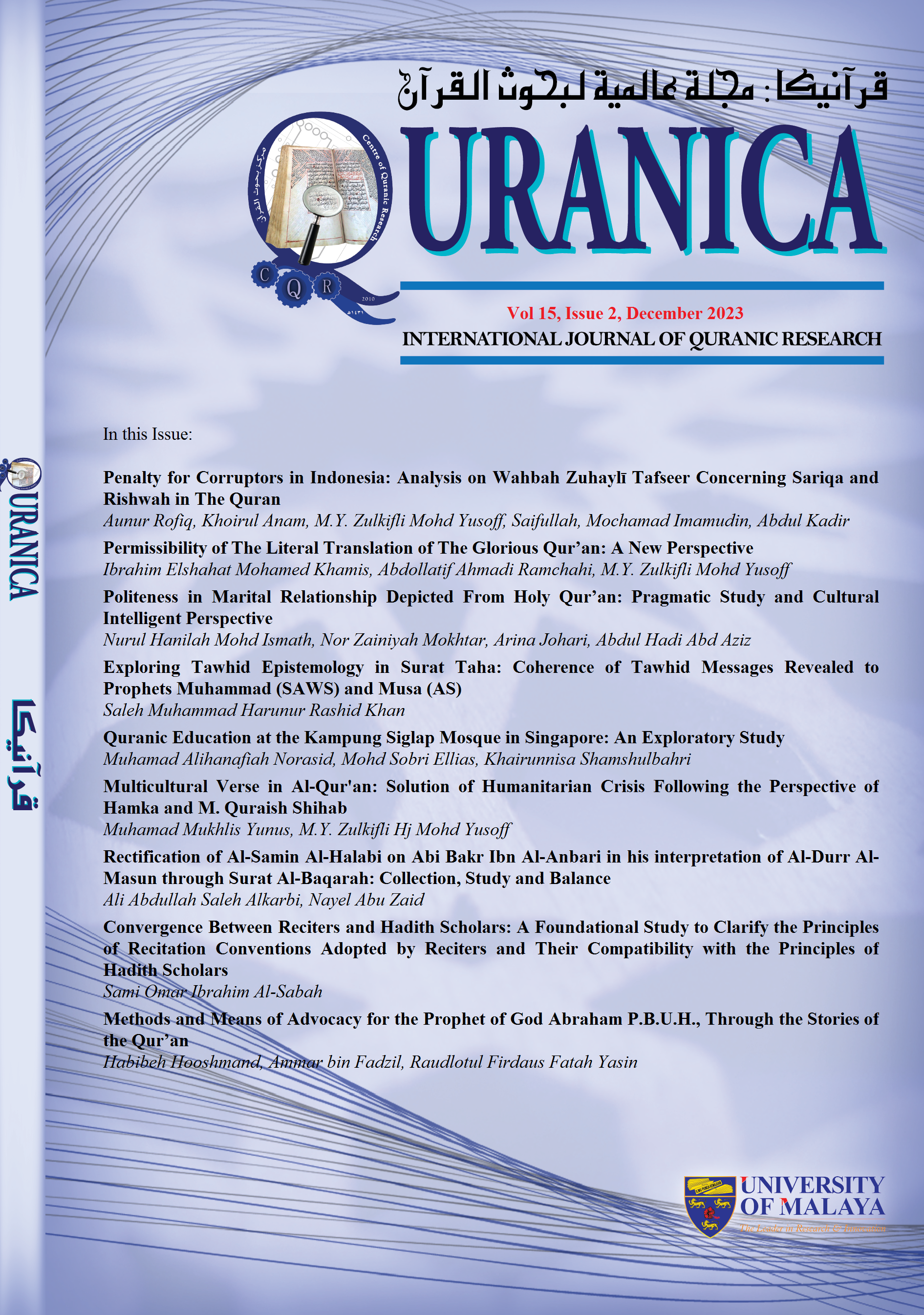Politeness in Marital Relationship Depicted From Holy Qur’an: Pragmatic Study and Cultural Intelligent Perspective
Main Article Content
Abstract
The goal of this study is to examine the strategies of politeness used in the Qur’an regarding marital relationship and relate it with the cultural intelligent perspective. Marital relationship here refers to the sexual intercourse between man and woman after getting married. Marital relationships have been represented negatively in different types of cultures which forced marriage is concerned. Two aspects are examined herein: the politeness of Al-Qur’an interacts with sensitive issue in relation to sexual intercourse and how it relates with cultural intelligence. A qualitative approach is used to provide interpretations of the hidden meanings in the selected excerpts, adopting Brown and Levinson’s theory of politeness and Leech’s maxims of politeness and relate it with cultural intelligent perspective as the guides for the analysis. The analysis has revealed that the Al-Quran address this sensitive issue with decent and polite. The use of off-record strategies and positive and negative face strategies of politeness have been found to be dominant in discussion of issues related to sexual intercourse. These strategies have been used to avoid unpleasant communication and causing any embarrassment, and thereby saving the face of recipients, both men and women. This study will contribute to the field of pragmatics and will lead to cross-religious and cross- cultural understanding during a period where Islam and its teachings are being widely questioned and examined.
Downloads
Article Details
Disclaimer
QURANICA makes every effort to ensure the accuracy of all its contents. However, opinions, discussions, views and recommendations are expressed in this journal do not necessarily reflect the official policy of QURANICA or views of its editors or publishers. Therefore, QURANICA and its publishers will not be liable for any controversy may be arisen. The journal reserves the right, at its sole discretion, to change its terms and conditions of publications.
Copyright
It is a condition of publication that manuscript submitted to the journal have not been published, accepted for publication, nor simultaneously submitted for publication elsewhere. By submitting a manuscript, the author(s) agrees that copyright for the article is transferred to the publisher, if and when the manuscript is accepted for publication.
